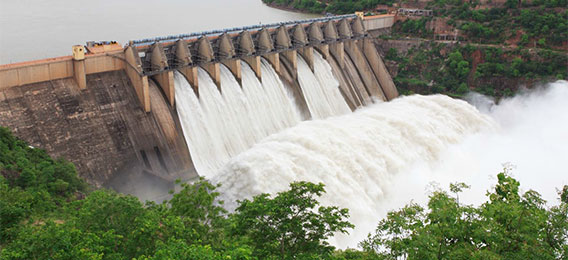Our Sustainability Risk Framework
In a market environment, profitable business activities create economic value. Occasionally, however, they may also adversely affect the environment and certain vulnerable groups. If such impacts are ignored, they may pose a threat to societies’ long-term sustainable development.

Dams are an important source of renewable energy, but can potentially also have impacts on the environment and local communities. In our Sustainability Risk Framework we have a policy that specifies the risks we examine before underwriting dam projects.
For companies, this situation can cause dilemmas: A specific business transaction may be economically beneficial and perfectly fine from a legal perspective, yet may have significant environmental and social downsides. At Swiss Re, we believe it is important to recognise the existence of such dilemmas and to develop effective responses. Doing so requires a well-defined approach and the willingness to make decisions based on ethical principles.
Our Sustainability Risk Framework is an advanced risk management instrument that has been specifically designed to identify and address such “sustainability risks” in our core business. It is applicable to all of our business transactions, ie re/insurance as well as investments, to the extent that we can influence their various aspects.
The Sustainability Risk Framework consists of:
- Eight policies on sensitive sectors or issues;
- The Sensitive Business Risks (SBR) process − a due diligence tool for assessing individual business transactions;
- Company exclusions;
- Country exclusions beyond mere compliance with international trade controls.
Sustainability risks
We define sustainability risks as ethical concerns related to potential environmental and socio-economic impacts of our business transactions, and the reputational risks they may entail.
For more information see Our Sustainability Risk Framework